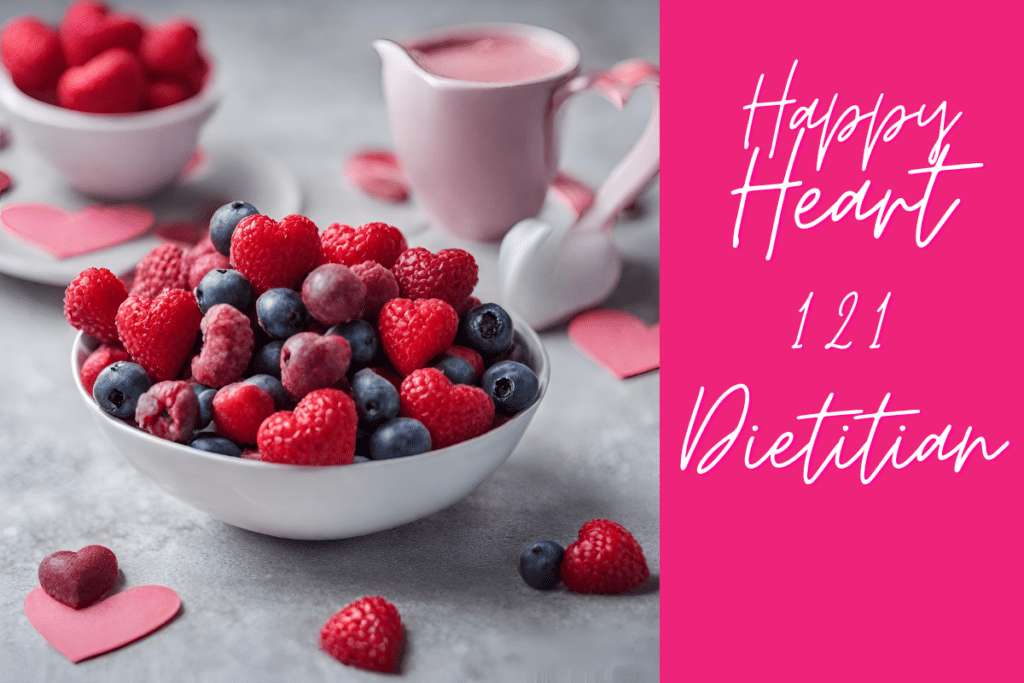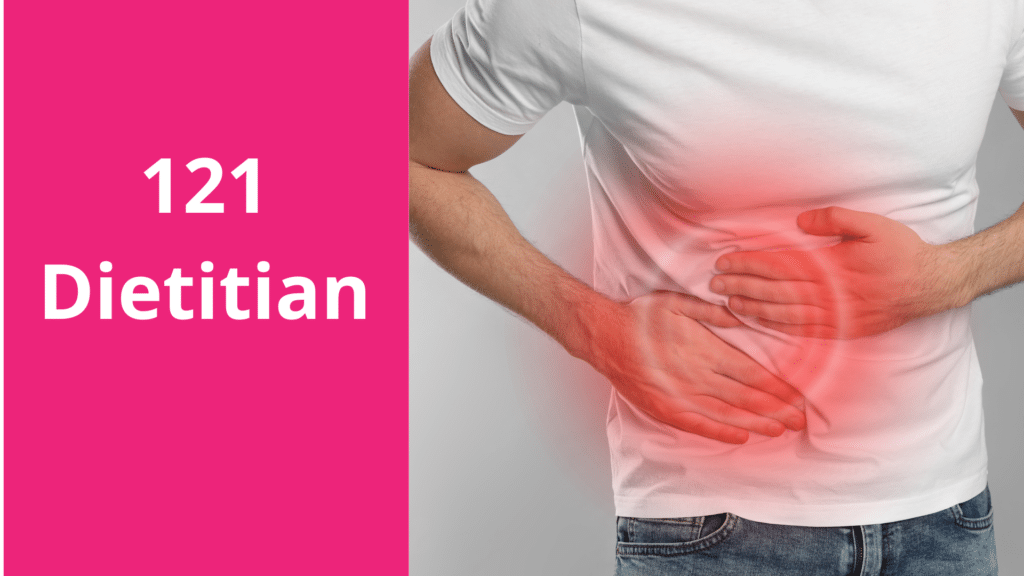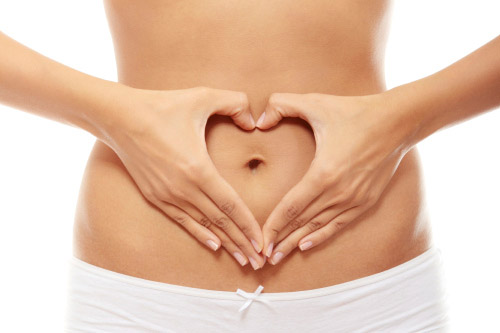The Heart Healthy Power of Antioxidants

Celebrate Valentine’s Day by learning about the importance of antioxidants for heart health! Gillian Killiner, a specialist dietitian, sheds light on how these powerful compounds can keep your heart strong and vibrant.
How Gillian Killiner, Specialist GI Dietitian, Transforms Digestive Health

Gillian Killiner RD, a renowned Specialist GI Dietitian and the founder of 121 Dietitian, is on a mission to revolutionise digestive health care. With her wealth of experience and dedication to patient-centric care, Gillian empowers individuals with gastrointestinal (GI) conditions to navigate their dietary challenges and reclaim their well-being. In this blog, we delve into Gillian’s expertise and explore how she leverages her skills to make a positive impact on the lives of her patients. Meet Gillian Killiner: A Pioneer in GI Dietetics Gillian Killiner stands at the forefront of GI dietetics, pioneering innovative approaches to dietary management for individuals with GI conditions. With a passion for improving patient outcomes and a commitment to evidence-based practice, Gillian’s work has earned her widespread recognition as a leader in her field. Founding 121 Dietitian Driven by a desire to bridge the gap between nutrition and gastrointestinal health, Gillian founded 121 Dietitian 2008, a specialised dietetic service dedicated to supporting individuals with GI conditions. Through 121 Dietitian, Gillian offers personalised dietary guidance, empowering patients to achieve optimal digestive wellness. Gillian’s Approach to Patient Care Personalised Dietary Assessments At the heart of Gillian’s practice lies a commitment to individualised care. Through comprehensive dietary assessments, Gillian gains insights into each patient’s unique nutritional needs, medical history, and lifestyle factors. This personalised approach enables her to develop tailored dietary plans that address the specific challenges faced by her patients. Evidence-Based Interventions Gillian’s recommendations are grounded in the latest scientific research and best practices in GI dietetics. By staying abreast of emerging trends and advancements in the field, Gillian ensures that her patients receive the most up-to-date and effective dietary interventions available. Holistic Support and Education Beyond dietary recommendations, Gillian provides holistic support and education to her patients, empowering them with the knowledge and tools needed to manage their condition effectively. Through one-on-one counselling sessions, educational resources, and ongoing support, Gillian equips individuals with the skills to make informed choices and take control of their digestive health. How Gillian Helps Patients Navigate GI Conditions Managing Irritable Bowel Syndrome (IBS) Gillian specialises in assisting patients with conditions such as irritable bowel syndrome (IBS), offering tailored dietary strategies to alleviate symptoms and improve quality of life. By identifying trigger foods, implementing dietary modifications, and providing ongoing support, Gillian helps individuals with IBS regain control over their digestive health. Navigating Inflammatory Bowel Disease (IBD) For those living with inflammatory bowel disease (IBD), Gillian offers invaluable support in managing their condition through diet. By addressing nutritional deficiencies, optimising nutrient absorption, and advising on disease-specific dietary approaches, Gillian empowers patients with IBD to better manage their symptoms and enhance their overall well-being. Conclusion Gillian Killiner, Specialist GI Dietitian and founder of 121 Dietitian, is a beacon of hope for individuals struggling with gastrointestinal conditions. Through her expertise, compassion, and unwavering dedication to patient care, Gillian transforms lives by empowering her patients to navigate their dietary challenges with confidence and resilience. With Gillian’s guidance, individuals with GI conditions can embark on a journey towards improved digestive health and enhanced quality of life. If you want to book your programme TODAY we would love to help you. You can book a 121 Dietitian Programme today by clicking on the link below BOOK TODAY
How to Improve Gut Health in the UK

Understanding Gut Health Gut health is a very common concern that Gillian Killiner, our 121 gut specialist award winning Dietitian is asked to assess by Drs, Consultants, AHPs and patients who self-refer. She treats many every day, whether it be through online consultations or face-to-face in her clinic. If you’re not familiar with the concept of gut health, don’t worry! It’s a broad topic that encompasses various aspects related to different parts of the body, in addition to the gut itself and in the next few blogs we hope to cover these areas in more detail so you can get a better understanding. Gut Bacteria The gut microbiota, also known as gastrointestinal bacteria, is a diverse community of microorganisms that reside primarily in a part of the large bowel known as the colon, which is part of the digestive tract. This community includes bacteria, viruses, fungi, and other single-celled organisms. The gut microbiota plays a crucial role in various aspects of human health, and its composition can vary among individuals. A healthy gut not only strengthens our immune system but also supports the well-being of essential organs like the heart and brain. Moreover, it positively influences mood, fostering happiness and satisfaction. We know that when the gut is not balanced health is compromised at many levels. How are we able to assess our gut bacteria? Research into gut bacteria has been conducted since the invention of the microscope around 1665. Over the past 30 years, there has been a significant leap in this field, thanks to the sequencing of small molecules of life, including DNA and eventually RNA. What is Gut Health? The term “Gut health” is the umbrella term for various health conditions including : GERD Irritable bowel syndrome Hemorrhoids Coeliac disease Gallstones Constipation Diverticulitis Gastritis Ulcers Colorectal cancer Diarrhoea Gastrointestinal infections Liver disease Pancreatitis Esophageal cancer Gastroparesis Years of research and work in practice link these conditions to our gut bacteria whether as a direct cause, preventative or used as a treatment. In addition extensive research has also been linking the vital organs like brain, heart, liver, skin to our gut bacteria and how imbalances in the gut microbiota can lead to increased intestinal permeability or “leaky gut,” allowing harmful substances to enter the systemic circulation and burdening liver function. We know the health of our skin is closely linked to our gut health due to their shared immune system involvement. Research indicates that disruptions in the balance of intestinal flora may contribute to skin conditions like acne, eczema, psoriasis, rosacea, and dermatitis. The gut-brain axis is a bidirectional communication system between the brain and the GI tract. Treating the gut can directly assist mental health and well-being. Our Gut Health Programme is adapted to suit all gut health issues and more. Excellent Gut Health Ensuring excellent gut health at every age is crucial for overall wellness. An effective digestive system also promotes efficient nutrient digestion and absorption, which subsequently enhances sleep quality. Hence, giving priority to gut health is highly recommended. × Dismiss this alert. Dietitian’s Role in Managing Digestive Disorders A dietitian plays a crucial role in managing digestive disorders by providing tailored nutritional guidance to alleviate symptoms, promote digestive health, and improve overall well-being. Our 121 Gut Health Programme has helped thousands of people not only regain control of their bowel symptoms and health but also improve their sleep, mental clarity, weight and other health issues. How does 121 Dietitian work to improve Gut Health? At 121 Dietitian we work closely with other healthcare professionals to aid in the diagnosis and treatment of digestive disorders. We perform detailed individual assessments take a deep dive into the detail in our 60-minute consultation before writing up a detailed bespoke plan, supplement and lifestyle protocol. Before attending an appointment, our patients are required to log in to our online Portal to complete our background questionnaire and Food and Symptoms Diary. This part of the programme is completely free of charge and allows one of our specialist dietitians to direct you to select the correct programme. The programme includes a 30-minute review to ensure the programme has been successful and provide further nutritional advice and guidance as part of the programme requirements. Mairead AdamsGoogle Review Read More After having COVID at the end of 2022 I suddenly developed allergies to Milk products and intolerances to other foods. My Gastroenterologist recommended I see Gillian, who put me on her low Fodmap Programme at the end of September and I am now at the Reintroduction Stage. Since commencing the Programme, my bowel movements and general health have improved dramatically. I sleep better and a number of my aches and pains have gone. After having diarrhoea for 9 months, effectively, I can now go out and about without that worry of knowing if I will be close to a toilet and if I will be able to get there on time, to constantly carrying Immodium, just in case. The peace of mind this has given me is enormous, never mind that I now feel more like a ‘normal’ person. I still have to watch what I eat, especially in relation to my milk allergy, which may take a bit longer to ‘fix’, if it can be fixed. However, the change in me is amazing and I am extremely grateful to Gillian for her time, advice and patience in getting me to this point. Thank you Gillian. How a Specialist Dietitian can fix your Gut… Specialist gastrointestinal Dietitian Gillian Killiner brings her 26 years of dietetic experience to help each patient she sees. Her deep dive is extensive – here are just some of the areas covered…. Fibre Management We guide patients on appropriate fibre intake, considering the type and amount of fibre that can aid in digestion without causing discomfort. Food Allergies and Intolerances We identify and address food allergies or intolerances that may contribute to digestive issues.Recommend suitable alternatives to replace problematic foods. Hydration We emphasise the importance of adequate
Meet the 121 Dietitian Team

121 Dietitian provides a full Private Dietetic Service across the UK, Northern Ireland and worldwide. Founder Gillian Killiner is the Lead Dietitian supported by the following specialist team.
Diet and Eyesight :The Vital Connection

Today, I am going to explore a topic that’s often overlooked: the relationship between Diet & Eyesight. It is so important and I can’t believe I haven’t talked about it before! Your eyes are a windows to your overall health and can really impact your quality of life if you find yourself with an eye related health problem. Welcome if you are new here to 121 Dietitian. I’m Gillian Killiner, founder of 121 Dietitian, and I have been writing blogs for many years on various topics alongside my clinical work. So hopefully you will find some information relevant or interesting to you. Understanding the Basics – Diet & Eyesight So what does the eye do? The human eye is a complex organ. It works like a camera by capturing and processing light, which is then transformed into visual information that our brain can understand. Its well-being relies on a variety of nutrients to function optimally. These nutrients can be obtained through a balanced diet, and they play a crucial role in maintaining good eyesight throughout your life. So lets look first at foods that could impact negatively on your eye health: 1. Sugary Drinks Sugary fizzy drinks, energy drinks, sweet tea, and lemonade, high fructose syrups. These beverages are often loaded with sugar, and excessive sugar consumption can increase your risk of developing type 2 diabetes and heart disease. These conditions, in turn, can lead to eye problems like diabetic retinopathy and age-related macular degeneration (AMD). Just to put things in perspective, a single soft drink can contain a whopping 37 grams of sugar! So, it’s wise to be mindful of how many sodas you consume daily. 2. Fish & Shellfish Fish and shellfish are generally considered healthy sources of protein and essential nutrients. However, they do contain small amounts of mercury. While this isn’t a major concern for most people, certain groups are more susceptible to health problems related to mercury exposure. This includes pregnant women, nursing mothers, and children. For these individuals, it’s recommended to limit fish intake to 2 portions per week to reduce the risk of eye damage. 3. Bread Products Bread products, such as white bread and pasta, are daily dietary staples for many of us. However, they contain simple carbohydrates that are digested quickly, leading to rapid spikes in blood sugar levels. This can contribute to chronic inflammation, a condition linked to AMD. If you’re worried about the impact of bread products on your eye health, consider limiting your consumption and exploring whole-grain alternatives. 4. Prepackaged Foods Prepackaged foods are convenient but often not healthy and frequently contain high levels of sodium, which can lead to high blood pressure. Elevated blood pressure, can damage your retina and result in a condition known as hypertensive retinopathy. To reduce your sodium intake, look for “low sodium” labels on canned goods, soups, and sauces when food shopping, but more importantly rethink the amount you use of these products and consider how you can cook with natural ingredients when possible. 5. Processed Meat Processed meats like bacon, deli meats, sausages are loved by many but can be high in sodium as well. Beyond contributing to hypertensive retinopathy, excessive sodium intake can cause choroidopathy, characterized by fluid buildup under the retina, and neuropathy, which can lead to blockages in blood flow. So the message here is to watch your salt and sugar intake as this can go a long way in preserving your eye health. So what can you eat instead? Thankfully there is an abundant variety of foods and fluids that can assist and nourish the eyes. Key Nutrients for Healthy Eyes Preventing Age-Related Eye Conditions: Consuming a diet rich in antioxidants, such as vitamins C and E, can help protect your eyes from the oxidative stress associated with aging and reduce the risk of cataracts and AMD. Maintaining Eye Moisture: Omega-3 fatty acids help keep your eyes moist and reduce the risk of dry eye syndrome, which can be uncomfortable and affect your vision. Enhancing Night Vision: Adequate intake of vitamin A ensures your eyes can adapt to low-light conditions, which is crucial for night vision. Shielding Against Harmful Light: Lutein, zeaxanthin, and beta-carotene act as natural filters, protecting your eyes from harmful ultraviolet (UV) and blue light. Promoting Eye Tissue Health: Nutrients like zinc support the health of eye tissues and may reduce the risk of conditions like macular degeneration. Conclusion – Diet & Eyesight Our eyes are invaluable, and protecting our vision should be an integral part of our daily life. A diet rich in the right nutrients can play a pivotal role in maintaining and safeguarding eyesight. By incorporating foods rich in vitamins A, C, E, omega-3 fatty acids, zinc, and carotenoids into your daily meals, you are investing in the long-term health of your eyes. At 121 Dietitian, we understand the importance of nutrition in promoting overall well-being, including eye health. If you’d like personalized guidance on optimizing your diet for better eyesight or any other nutritional concerns, don’t hesitate to reach out. Remember, a nutritious diet isn’t just about looking good; it’s about seeing the world around you safely for years to come. If you want to book your programme TODAY we would love to help you. You can book a 121 Dietitian Programme today by clicking on the link below CONTACT TODAY Vitamin A: This is perhaps the most well-known nutrient for eye health. Vitamin A helps maintain the health of your cornea, the outermost layer of your eye. A deficiency in vitamin A can lead to night blindness and other vision problems. Vitamin A is found as retinol in meats, dairy, eggs and Beta-carotene in fruits and vegetables. Vitamin C: Found in fruits and vegetables like oranges, strawberries, and bell peppers, vitamin C supports the blood vessels in your eyes and can help prevent cataracts and age-related macular degeneration (AMD). Vitamin E: Nuts, seeds, and leafy greens are rich sources of vitamin E, which is known for its antioxidant properties. Antioxidants
Health and Happiness for 2024
A New Year to rethink… Hi to you all Firstly I wish to thank you for your support in reading our blogs and following us on Facebook, Instagram, and LinkedIn. We hope you had a pleasant Christmas Break and some relaxation was included. It’s hard at this time of year if it is cold and dark outside to feel upbeat and energised, but there is something about a New Year that gets people thinking and wanting to change. We, as you know, love to help people and are here at 121 Dietitian as a growing team to assist you in your diet, lifestyle and health goals. Please do give us a call or message if you wish to discuss your plans and see how we can assist you or a friend or family member. We do hope you keep reading and liking our blogs which I have been creating to guide you through much confusion and please watch out for some new plans and services that we hope to bring you in 2024. Many thanks and Health and Happiness to you all for 2024 Warm regards Gillian x Gillian Killiner – Founder and Director @ 121 Dietitian If you want to book your programme TODAY we would love to help you. You can book a 121 Dietitian Programme today by clicking on the link below CONTACT TODAY